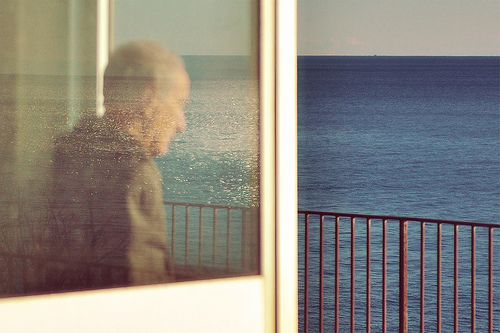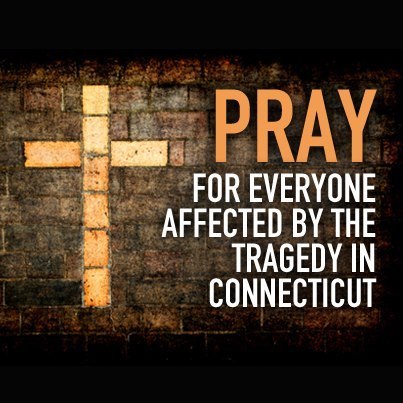Randy Alcorn's Blog, page 204
December 26, 2012
A Child’s Life-Saving Heart Surgery
 One of the ministries EPM supports is Action International. Devendra and Koko Rai work with Action in India, and in November, Devendra sent out a prayer request for the daughter of an Indian pastor. Changpi (who turned 7 on December 8) was diagnosed with a hole in her heart that created complications in her liver. She needed an operation as soon as possible, which needed to be performed in a city 60 hours away by train. (In the picture, she is between the girl in the blue dress and the girl with a flower in her hair.)
One of the ministries EPM supports is Action International. Devendra and Koko Rai work with Action in India, and in November, Devendra sent out a prayer request for the daughter of an Indian pastor. Changpi (who turned 7 on December 8) was diagnosed with a hole in her heart that created complications in her liver. She needed an operation as soon as possible, which needed to be performed in a city 60 hours away by train. (In the picture, she is between the girl in the blue dress and the girl with a flower in her hair.)
Her father was at his wit’s end; with an income of only $130 a month, a surgery costing $8,000 seemed impossible. But without the operation, it would soon be too late for Changpi. (Devendra explained that more than 90% of people in India don’t have health insurance, or for that matter, any kind of insurance.)
 EPM was able to join others in sending funds for Changpi’s surgery. Two weeks later, her father reported that the operation was successful, and his daughter’s life was spared. Devendra wrote, “Thank you all for your prayers and for your generous help to this dear pastor. Pastor Langshukyu is very thankful to all of you for your help.”
EPM was able to join others in sending funds for Changpi’s surgery. Two weeks later, her father reported that the operation was successful, and his daughter’s life was spared. Devendra wrote, “Thank you all for your prayers and for your generous help to this dear pastor. Pastor Langshukyu is very thankful to all of you for your help.”
What a privilege and joy to invest in the life of this precious child, and ultimately in God’s kingdom. As Jesus said, “It is more blessed to give than to receive” (Acts 20:35). Thank you, Lord. “Everything comes from you, and we have given you only what comes from your hand” (1 Chronicles 29).

From Eternal Perspective MinistriesIf you’re interested in supporting some of the wonderful ministries who specifically provide life-saving health care for children and the needy around the world, we recommend the following:
Mercy Ships - Through free, basic, health-care and transformative surgeries, Mercy Ships becomes the face of love in action. The hospital ship - Africa Mercy - provides first-rate medical professionals, state-of-the-art medical and surgical facilities and health-care training to communities in West Africa that lack those critical services.
Samaritan’s Purse: Children’s Heart Project – This outreach works with top-quality hospitals to provide surgery for children who live in countries where the medical expertise and equipment are not available. Since 1997, CHP has arranged life-saving operations for more than 800 children.
MedSend – This ministry enables highly qualified and dedicated healthcare professionals to serve spiritually and physically needy people around the world in the name of Christ.
December 24, 2012
Pondering God’s Giving Heart This Christmas
Merry Christmas and Happy New Year from Nanci and me, and from all the staff at Eternal Perspective Ministries! I want to thank you for all the ways you support this ministry, especially through your prayers.
I share more thoughts in this 1 1/2 minute video:
 One of the things I love most about Christmas is that it’s all about giving—with the ultimate gifts being Christ’s incarnation and His atonement. 2 Corinthians 8:9 says, “For you know the grace of our Lord Jesus Christ, that though he was rich, yet for your sake he became poor, so that you by his poverty might become rich.” Scripture says we love Him because He first loved us, and it’s also true that we give to Him because He first gave to us.
One of the things I love most about Christmas is that it’s all about giving—with the ultimate gifts being Christ’s incarnation and His atonement. 2 Corinthians 8:9 says, “For you know the grace of our Lord Jesus Christ, that though he was rich, yet for your sake he became poor, so that you by his poverty might become rich.” Scripture says we love Him because He first loved us, and it’s also true that we give to Him because He first gave to us.
Jesus said in Acts 20:35, “It’s more blessed to give than to receive.” The translated blessed means “happy-making.” This verse literally says, “It is more happy-making to give than to receive!”
So I encourage you to ponder God’s giving heart this Christmas, and to celebrate all He has done for you.
Merry Christmas!

December 21, 2012
Why Doesn’t God Do More to Restrain Evil and Suffering? Part 2
In order to understand this blog, it would be helpful for you to have read the previous one.
Severe suffering seems unacceptable to us precisely because we are unaccustomed to it.
 Susanna Wesley had nineteen children; nine of them died before they reached the age of two. Puritan Cotton Mather had fifteen children and outlived all but two. Ironically, the problem of evil and suffering seems worse to us who live in affluent cultures precisely because we face less of it than many people have throughout history.
Susanna Wesley had nineteen children; nine of them died before they reached the age of two. Puritan Cotton Mather had fifteen children and outlived all but two. Ironically, the problem of evil and suffering seems worse to us who live in affluent cultures precisely because we face less of it than many people have throughout history.
I heard an exasperated woman at a restaurant table loudly proclaim that her Porsche had to be taken in for repairs and now she had to drive her Audi. In contrast I have met devout Christians in Africa and Southeast Asia who have endured famine, genocide, and persecution, yet smile genuinely as they affirm God’s goodness and grace.
C. S. Lewis wrote,
Imagine a set of people all living in the same building. Half of them think it is a hotel, the other half think it is a prison. Those who think it is a hotel might regard it as quite intolerable, and those who thought it was a prison might decide that it was really surprisingly comfortable. So that what seems the ugly doctrine is one that comforts and strengthens you in the end. The people who try to hold an optimistic view of this world would become pessimists: the people who hold a pretty stern view of it become optimistic. [1]
 People who ask why God allowed their house to burn down likely never thanked God for not letting their house burn down the previous ten thousand days of their lives. Why does God get blame when it burns, but no credit when it doesn’t? Many pastors and church members have experienced church splits, feeling the agony of betrayal and disillusionment. But where were the prayers of gratitude back when the church was unified? Our suffering seems extreme in the present only because God has graciously minimized many of our past sufferings.
People who ask why God allowed their house to burn down likely never thanked God for not letting their house burn down the previous ten thousand days of their lives. Why does God get blame when it burns, but no credit when it doesn’t? Many pastors and church members have experienced church splits, feeling the agony of betrayal and disillusionment. But where were the prayers of gratitude back when the church was unified? Our suffering seems extreme in the present only because God has graciously minimized many of our past sufferings.
Dorothy Sayers wrote,
“Why doesn’t God smite this dictator dead?” is a question a little remote from us. Why, madam, did he not strike you dumb and imbecile before you uttered that baseless and unkind slander the day before yesterday? Or me, before I behaved with such a cruel lack of consideration to that well-meaning friend? And why sir, did he not cause your hand to rot off at the wrist before you signed your name to that dirty bit of financial trickery? You did not quite mean that? But why not? Your misdeeds and mine are none the less repellent because our opportunities for doing damage are less spectacular than those of some other people. Do you suggest that your doings and mine are too trivial for God to bother about? That cuts both ways; for in that case, it would make precious little difference to his creation if he wiped us both out tomorrow. [2]
Our birthright does not include pain-free living. Only those who understand that this world languishes under a curse will marvel at its beauties despite that curse. C. S. Lewis’s final article, published after his death, carried the title “We Have No Right to Happiness.” Believing that we do have such a right sets us up for bitterness.
Fallen beings could not survive in a perfectly just world where God punished evil immediately.
 What if every time I gave a hundred dollars to feed the hungry, two hundred dollars appeared in my wallet? Or when I spoke a kind word to a weary supermarket checker, I received a Starbucks gift card?
What if every time I gave a hundred dollars to feed the hungry, two hundred dollars appeared in my wallet? Or when I spoke a kind word to a weary supermarket checker, I received a Starbucks gift card?
Suppose that every time a man yelled at a child or looked at a woman lustfully, a painful shock jolted his frontal lobe? Or when he lied, he got an instant toothache or was struck dead by lightning?
If we think we want all evil judged now, we’re not thinking clearly.
Were such rewards and punishments built into our lives, the world would certainly be more just—but at what cost? We would base our obedience on instant payoffs or the avoidance of instant pain, not on loving God. Our behavior might improve, but our hearts wouldn’t. Faith would fade, because faith means trusting God to eventually make right what is now wrong.
Do you believe the world would be a better place if people immediately paid the just penalty for every sin? In God’s sight, every evil is a capital crime (see Romans 6:23). The woman who tells a “little white lie,” the teenager who shoplifts, the greedy man, the gossiper, all would instantly die. D. A. Carson writes, “Do you really want nothing but totally effective, instantaneous justice? Then go to hell.” [3]
God restrains suffering through our limited life spans—people don’t endure eons, millennia, or centuries of suffering, but only decades, years, months, weeks, days, and hours.
 Take the total number of years you believe human life has existed. Now, ask yourself what portion of that time any one human being has suffered.
Take the total number of years you believe human life has existed. Now, ask yourself what portion of that time any one human being has suffered.
Suppose God permitted evil and suffering, yet limited them to one ghastly year of human history. Would we consider that duration of evil and suffering acceptable? What about one month? If someone could prove that we would become greater and happier beings for all eternity as a result, would you think it right for God to allow ten seconds of intense suffering? Likely you would.
Once we make that admission, do you see where it puts us? If we could justify ten seconds, then why not ten hours, ten days, or ten years? And in eternity, as we look back, how much longer will ninety years seem than ninety minutes?
Who holds the record for suffering among all human beings alive today? As I write, the oldest person in the world is 114 years old. She hasn’t suffered her whole life. But suppose she suffered significantly for a century. Most people, obviously, will endure much less. Some suffer severely for five days, weeks, months, or years; some, perhaps, for fifty years. However, no one in this world suffers for 10,000, 1,000, or even 130 years.
To say God takes too long to bring final judgment on evil and suffering imposes an artificial timetable on someone time cannot contain. God’s Son entered time in his incarnation. Though he understands our impatience, he won’t yield to it—and one day we’ll be grateful that he didn’t.
God allows substantial evil and suffering because he values our sense of neediness and trust as we turn to him for his grace.
Each year before Christmas we look forward to our church choir singing “Send the Messiah.” The haunting lyrics and powerful presentation resonate within us:
The cry of generations echoes in the heart of heaven....
I need a Savior who will walk the earth down here with me.... Send the Messiah, I need his love to own me. [4]
God sent the Messiah once, but he will send him again to deliver us. Paul, likely within months of his death, said God will grant a special eternal reward “to all who have longed for his appearing” (2 Timothy 4:8). What makes us long for our Lord? Isn’t much of it because of the evil and suffering we face in this life?
 Thankfully, while the Messiah may not return to Earth as soon as we’d like, he promises, “Surely I am with you always, to the very end of the age” (Matthew 28:20). So while we long for and pray for God to send the Messiah to bring an end to this age of evil and suffering, we need not wait until then to enter his presence.
Thankfully, while the Messiah may not return to Earth as soon as we’d like, he promises, “Surely I am with you always, to the very end of the age” (Matthew 28:20). So while we long for and pray for God to send the Messiah to bring an end to this age of evil and suffering, we need not wait until then to enter his presence.
In light of the work done by Christ, our sympathetic high priest, we’re told, “Let us then approach the throne of grace with confidence, so that we may receive mercy and find grace to help us in our time of need” (Hebrews 4:16).
Until God sends the Messiah to rescue this world, or he rescues us through our deaths, may we approach his throne confidently, seeking his fellowship, comfort, mercy, and grace in our time of need... today, this very hour.

This is an excerpt from If God is Good , by Randy Alcorn.
Sources
[1] C. S. Lewis, God in the Dock (Grand Rapids, MI: Eerdmans, 1994), 52.
[2] Dorothy L. Sayers, “The Triumph of Easter,” in Creed or Chaos (London: Methuen, 1954).
[3] D. A. Carson, How Long, O Lord? (Grand Rapids, MI: Baker Academic, 2006), 161.
[4] Daniel Perrin, “Send the Messiah,” https://www.cedarpark.org/resources/m... html.php?id=60.
Photo Credits
Crying tear: torli via sxc.hu | Gift card: cafemama via photopin cc | man and the sea: photo credit: Hop-Frog via photopin cc| flowers and worship: {Salt of the Earth} via photopin cc
December 19, 2012
Why Doesn’t God Do More to Restrain Evil and Suffering? Part 1

God may already be restraining 99.99 percent of evil and suffering.
Why does the chaos that breaks out in some corner of the world always prove the exception rather than the rule? Why haven’t tyrants, with access to powerful weapons, destroyed this planet? What has kept infectious diseases and natural disasters from killing 99 percent of the world’s population rather than less than 1 percent?
In the collapse of New York’s Twin Towers, fifteen thousand people came out alive. While this doesn’t remove the pain felt by families of the nearly three thousand who died, it shows that even on that terrible day, suffering was limited.
 Nanci said to me, “Given what Scripture tells us about the evil of the human heart, you’d think that there would be thousands of Jack the Rippers in every city.” Her statement stopped me in my tracks. Might God be limiting sin all around us, all the time? Second Thessalonians 2:7 declares that God is in fact restraining lawlessness in this world. For this we should thank him daily.
Nanci said to me, “Given what Scripture tells us about the evil of the human heart, you’d think that there would be thousands of Jack the Rippers in every city.” Her statement stopped me in my tracks. Might God be limiting sin all around us, all the time? Second Thessalonians 2:7 declares that God is in fact restraining lawlessness in this world. For this we should thank him daily.
If God permitted people to follow their every evil inclination all the time, life on this planet would screech to a halt. Sometimes God permits evil by giving people over to their sins (see Romans 1:24–32), and this itself leads to the deterioration and ultimate death of an evil culture, which is a mercy to surrounding cultures. The most morally corrupt ancient cultures no longer exist.
“But many children suffer; why doesn’t God protect them?” We don’t know the answer, but we also don’t know how often God does protect children. The concept of guardian angels seems to be suggested by various passages (see, for example, Matthew 18:10).
God gives us a brief, dramatic look into the unseen world in which righteous angels battle evil ones, intervening on behalf of God’s people (see Daniel 10:12–13, 20). How many angels has God sent to preserve the lives of children and shield them from harm?
My earliest memory is of falling into deep water and nearly drowning; someone my family didn’t know rescued me. As a parent and a grandparent I have seen many “close calls” where it appears a child should have died or suffered a terrible injury, but somehow escaped both.
This thought, of course, doesn’t keep a parent’s heart from breaking when her child suffers or dies. Still, though I can’t prove it, I’m convinced God prevents far more evil than he allows.
God may also be preventing 99.99 percent of tragedies.
Great though they may be, God actively restrains the tests and temptations that come our way so that we will not experience anything greater than we can bear (see 1 Corinthians 10:13).
 Fatal car and airplane accidents bring awful devastation, but statistically these are rare. On January 15, 2009, what should have brought certain death to passengers aboard Flight 1549, and catastrophe to Manhattan, turned into what secular reporters labeled a “miracle.” The pilot, Chesley Sullenberger, safely landed a crippled plane in New York’s Hudson River, with no serious injuries.
Fatal car and airplane accidents bring awful devastation, but statistically these are rare. On January 15, 2009, what should have brought certain death to passengers aboard Flight 1549, and catastrophe to Manhattan, turned into what secular reporters labeled a “miracle.” The pilot, Chesley Sullenberger, safely landed a crippled plane in New York’s Hudson River, with no serious injuries.
While chunks of ice and busy ferries filled most of the river, the place where the plane came down remained clear of both ice and boats. It landed without breaking apart. Ferryboat captains rescued all 155 people from the frigid river within minutes. The New York Times suggested “more than luck” brought the plane down mere minutes from experts trained in water rescues. Passengers who said they hadn’t believed in God nevertheless prayed to him on the plane, then publicly thanked him for sparing their lives. [1]
I tell this story to raise a question—isn’t it likely that a kind and all-powerful God routinely prevents terrible tragedies in ways that we do not see and therefore do not credit as miracles?
While the miracle of Flight 1549 appears to be the exception, not the rule, we cannot know about most of the equally miraculous interventions of God that may have invisibly prevented other catastrophes. Perhaps one day we’ll hear those stories and marvel at how often God intervened when we imagined him uninvolved in our world.
God exercises wisdom and purpose by not always intervening in miraculous ways.
 As a young Christian, a teenager, I often asked God to show me signs. In the darkness of my room at night I would light a match and ask him to blow it out. What a simple miracle I requested! Nothing on the level of raising the dead, not even turning water to wine. But he never granted my request. And though I didn’t understand why at the time, now I have a better idea. What would I have asked him to do once he blew out the match? Levitate the pool table? And then what would I ask him to do to top that? Where would it end?
As a young Christian, a teenager, I often asked God to show me signs. In the darkness of my room at night I would light a match and ask him to blow it out. What a simple miracle I requested! Nothing on the level of raising the dead, not even turning water to wine. But he never granted my request. And though I didn’t understand why at the time, now I have a better idea. What would I have asked him to do once he blew out the match? Levitate the pool table? And then what would I ask him to do to top that? Where would it end?
How many magician’s tricks would we call upon Jesus to do? As we share Christ with a neighbor who says, “I don’t believe in God,” we might say, “Oh yeah? Watch this.” Then we’d call on God to torch the man’s maple tree. Seeing the tree vaporize would get his attention! And surely it would generate faith-oriented conversion, right?
No. That’s not how faith works, and it’s not how God works.
God did bring down fire from Heaven on occasions (see Numbers 16:35; 1 Kings 18:38). He even opened the earth to swallow up his enemies (see Numbers 16:31–33). Did this result in people turning to him for the long run? No. Jesus fed the multitudes and many followed for a while, but they turned away recoiling from his demanding words (see John 6:1–66). Abraham told the rich man that his brothers “will not be convinced even if someone rises from the dead” (see Luke 16:27–31).
We say, “Show me a miracle and I’ll believe,” yet countless people who have seen miracles continue to disbelieve.
In our eagerness to see greater miracles, we regard “natural processes” as minor and secondary, missing God’s marvelous daily interventions on our behalf.
Focusing on God’s “big miracles”—like curing cancer and making brain tumors disappear—causes us to overlook his small, daily miracles of providence in which he holds the universe together, provides us with air to breathe and lungs to breathe it, and food to eat and stomachs to digest it.
Years ago when I became an insulin-dependent diabetic, it dawned on me that I had never once, in the fifteen years I’d known him, thanked God for a pancreas that had worked perfectly until then.
No matter how much God reduced world suffering, we’d still think he did too little.
Evil and suffering make up part of a world in which God allows fallen people to go on living. How much evil and suffering is too much? Could God reduce the amount without restricting meaningful human choice, or decreasing the urgency of the message that the world’s gone desperately wrong and we need to turn to the Redeemer before we die?
 Suppose we rated all pain on a scale of one to ten, with ten representing the worst and most intense pain, and one describing the unpleasant yet quite tolerable. Say “engulfed in flames” got a ten rating while “mild sunburn” received a one. If God eliminated level ten pain, then level nine pain would become the worst. God could reduce the worst suffering to level three, but then level three, now the worst, would seem unbearable. Any argument that judges God’s goodness strictly by his elimination of pain will, in the end, not leave us satisfied if he permits any pain at all.
Suppose we rated all pain on a scale of one to ten, with ten representing the worst and most intense pain, and one describing the unpleasant yet quite tolerable. Say “engulfed in flames” got a ten rating while “mild sunburn” received a one. If God eliminated level ten pain, then level nine pain would become the worst. God could reduce the worst suffering to level three, but then level three, now the worst, would seem unbearable. Any argument that judges God’s goodness strictly by his elimination of pain will, in the end, not leave us satisfied if he permits any pain at all.
In Part 2 on Friday, we’ll look at whether we would really want God to punish evil immediately, and at how God allows substantial evil and suffering because he values our sense of neediness and trust as we turn to him for his grace.

This is an excerpt from If God is Good , by Randy Alcorn.
Source
[1] Michael Wilson, “Flight 1549 Pilot Tells of Terror and Intense Focus,” New York Times, February 9, 2009.
Photo Credits
9/11: wstera2 via photopin cc | | city: casch | flight 1549: derek7272 via photopin cc | lit match: Micah Taylor via photopin cc | sunset: macisaguy via photopin cc
December 17, 2012
How Great Evil Confirms the Biblical Teaching about Demons
 I can mourn with and pray for the families in Connecticut who lost their children (and in a few cases their spouses) in the school shooting. I certainly cannot offer any definitive explanation. I am dedicating this week’s three blogs to perspectives that may be helpful to some. Keep in mind that we are treating only a few aspects of the problem of evil, and therefore much will remain unaddressed. For a larger perspective, see my books on this issue, in particular If God is Good.
I can mourn with and pray for the families in Connecticut who lost their children (and in a few cases their spouses) in the school shooting. I certainly cannot offer any definitive explanation. I am dedicating this week’s three blogs to perspectives that may be helpful to some. Keep in mind that we are treating only a few aspects of the problem of evil, and therefore much will remain unaddressed. For a larger perspective, see my books on this issue, in particular If God is Good.
Acts of extreme evil, though routinely used as arguments against God, are actually arguments for supernaturalism.
I spent hours walking through Cambodia’s Killing Fields. Vek and Samoeun Taing, a gentle Cambodian couple who had survived there with a young child for two years, escorted our small group. Feeling numb, I saw the skulls piled up and stood by the mud pits where killers threw hundreds of bodies. A human jawbone lay at my feet. I picked it up, held it in my hand, and wept.
The darkness felt overwhelming. Pol Pot and the Khmer Rouge murdered nearly one-third of the country’s population. Yet the three million slaughtered in Cambodia amount to less than one-fiftieth of the murders by twentieth century tyrants, who killed mostly their own people. Hitler, Stalin, and Mao accounted for most of the carnage, but the ongoing state-sponsored killing in Sudan, including the Darfur region, follows the same script. (And this figure ignores the staggering number of preborn children aborted throughout the world.)
 Samoeun’s parents both starved to death. One of her brothers was murdered; they never again heard from another brother. Vek’s brother and sister-in-law and six of their children all perished. We stood together at a tree where Khmer Rouge soldiers held children by their little feet, swinging them into the tree to smash their heads. Unthinkable evil! Who could imagine such horrible crimes?
Samoeun’s parents both starved to death. One of her brothers was murdered; they never again heard from another brother. Vek’s brother and sister-in-law and six of their children all perished. We stood together at a tree where Khmer Rouge soldiers held children by their little feet, swinging them into the tree to smash their heads. Unthinkable evil! Who could imagine such horrible crimes?
I just looked again at a photograph of one sign written in Cambodian, referring to the “sea of blood and tears.” The sign reads as follows, its awkward English translation powerfully capturing the sentiment:
We are hearing the grievous voice of the victims who were beaten by Pol Pot men with canes, bamboo stumps or heads of hoes. Who were stabbed with knives or swords. We seem to be looking at the horrifying scenes and the panic-stricken faces of the people who were dying of starvation, forced labour or torture without mercy upon the skinny body.... How bitter they were when seeing their beloved children, wives, husbands, brothers or sisters were seized and tightly bound before being taken to mass grave! While they were waiting for their turn to come and share the same tragic lot.
The method of massacre which the clique of Pol Pot criminals was carried upon the innocent people of Kampuchea [Cambodia] cannot be described fully and clearly in words because the invention of this killing method was strangely cruel. So it is difficult for us to determine who they are for they have the human form but their hearts are demon’s hearts.
After all the horrors I’d learned of on that unforgettable day, human skulls at my feet, that one sentence rocked me: “They have the human form but their hearts are demon’s hearts.”
Yes! That was it. Nothing on a merely human level could explain the gratuitous torture, the tireless cruelty inflicted even on helpless children. This was superhuman evil.
 Nanci and I felt overwhelmed as we walked through the Holocaust Memorial in Washington, D.C. Years before we’d had an even more unforgettable experience at Yad Vashem, Jerusalem’s Holocaust museum. The burning candles and the reading of the names of children killed in the Holocaust remain among the most haunting and unforgettable experiences of my life. We watched sobbing men and women poring through books to find the names of their murdered relatives. What surrounded us cried out for an explanation even bigger than human depravity.
Nanci and I felt overwhelmed as we walked through the Holocaust Memorial in Washington, D.C. Years before we’d had an even more unforgettable experience at Yad Vashem, Jerusalem’s Holocaust museum. The burning candles and the reading of the names of children killed in the Holocaust remain among the most haunting and unforgettable experiences of my life. We watched sobbing men and women poring through books to find the names of their murdered relatives. What surrounded us cried out for an explanation even bigger than human depravity.
I think often of a young man I met on a plane who told me he didn’t believe in evil. When I asked him whether the Holocaust was evil, he replied, “I guess it was a mistake.” But his body language betrayed him. It was evil... and he knew it.
One test of a worldview is whether you sometimes have to borrow from another because yours doesn’t work. That’s what this young man had to do. I believe he recognized what he refused to verbalize. To admit the Holocaust was evil, he would have to abandon his worldview and borrow the concepts of both human and demonic evil from a worldview he didn’t want to believe.
Extreme evil committed by “regular” people demands a superhuman explanation.
Emmanuel Ndikumana is a Hutu married to a Tutsi. This is remarkable, since in the 1994 Rwandan slaughters, Hutu militia massacred a million Tutsis, many of them hacked to death with machetes. Tutsis then took revenge on Hutus. Teenage classmates at Emmanuel’s school targeted him for murder.
 Do you know what struck me most when Emmanuel told me of his survival? It was that the Tutsi students who tried to murder him were, in every respect, very normal young people. So were most of those Hutus who butchered innocent Tutsis. Yet the gruesome murders perpetrated by both sides transcend natural explanation—so what explanation remains but a supernatural one?
Do you know what struck me most when Emmanuel told me of his survival? It was that the Tutsi students who tried to murder him were, in every respect, very normal young people. So were most of those Hutus who butchered innocent Tutsis. Yet the gruesome murders perpetrated by both sides transcend natural explanation—so what explanation remains but a supernatural one?
And once we affirm there is supernatural evil, can we fail to recognize supernatural good? God and Satan are not equal opposites, but if there is a Satan and demons who do evil, then doesn’t it make sense that there is a God and righteous angels who do good?
Robert Lifton’s The Nazi Doctors: Medical Killing and the Psychology of Genocide documents how intelligent medical professionals participated in cruel and deadly experimental surgeries on Jewish children, with appalling ease. Among the best-trained medical personnel in Europe, they enjoyed normal family lives and loved their children and pets; but day after day, they committed shockingly cruel evils.
Susan Smith went to prison after drowning her two small sons because a man she was dating hinted that he didn’t like children. When Chuck Colson visited that prison, he heard that Smith had signed up to hear him speak. Colson looked for her in the audience but never saw her. Afterward he found out she’d been sitting right in front of him. His point? “The face of evil is frighteningly ordinary.” [1]
I’ve watched interviews with family, friends, and classmates of serial killers who all say the same chilling words: “He was such a nice boy.”
In People of the Lie, psychologist Scott Peck tells the story of Bobby, a young man suffering from depression. Bobby struggled with the recent suicide of his older brother, Stuart. His condition plummeted after Christmas.
Dr. Peck asked him what presents he’d received for Christmas. Bobby told him, “A gun.” This alarmed Peck because of Bobby’s depression, and especially since the boy’s brother had shot himself. Then came the horrifying truth: his parents gave Bobby the same gun Stuart had used to commit suicide. Bobby’s post-Christmas depression suddenly made sense. His seemingly normal parents, with their Christmas gift, had invited him to take his life like his brother had.
Satan and demons provide the most rational explanation for unnatural evil.
 In The Brothers Karamazov, Ivan cites terrible evil after evil to his Christian brother, Alyosha. He speaks of Turks nailing their prisoners by the ears to fences, only to let them suffer all night and then hang them in the morning. He says,
In The Brothers Karamazov, Ivan cites terrible evil after evil to his Christian brother, Alyosha. He speaks of Turks nailing their prisoners by the ears to fences, only to let them suffer all night and then hang them in the morning. He says,
People talk sometimes of bestial cruelty, but that’s a great injustice and insult to the beasts; a beast can never be so cruel as a man, so artistically cruel. The tiger only tears and gnaws, that’s all he can do. He would never think of nailing people by the ears, even if he were able to do it. These Turks took a pleasure in torturing children, too; cutting the unborn child from the mother’s womb, and tossing babies up in the air and catching them on the points of their bayonets before their mothers’ eyes. [2]
While Ivan considered this an argument against God, it actually provides a compelling argument against naturalism. Ivan is right. Mere animals would never do such a thing.
Ivan speaks of apparently normal people, responsible and civil to fellow adults, who delight in torturing children:
It is a peculiar characteristic of many people, this love of torturing children, and children only. To all other types of humanity these torturers behave mildly and benevolently, like cultivated and humane Europeans; but they are very fond of tormenting children.... It’s just their defenselessness that tempts the tormentor, just the angelic confidence of the child who has no refuge and no appeal, that sets his vile blood on fire. In every man, of course, a demon lies hidden—the demon of rage, the demon of lustful heat at the screams of the tortured victim, the demon of lawlessness let off the chain. [3]
Where did the ideas for such malignant evil come from? Read the Bible and C. S. Lewis’s The Screwtape Letters and you’ll discover the answer.
 Demons prompt the killing of children. The false god Molech, a demon, demanded the sacrifice of children. In the first of a dozen passages warning against this bloodthirsty demon, God says, “Do not give any of your children to be sacrificed to Molech, for you must not profane the name of your God” (Leviticus 18:2 1). God loves children, his tiniest image-bearers. Demons hate them. In killing them, demons lash out at God. It’s true of school shootings, and it’s true of abortion.
Demons prompt the killing of children. The false god Molech, a demon, demanded the sacrifice of children. In the first of a dozen passages warning against this bloodthirsty demon, God says, “Do not give any of your children to be sacrificed to Molech, for you must not profane the name of your God” (Leviticus 18:2 1). God loves children, his tiniest image-bearers. Demons hate them. In killing them, demons lash out at God. It’s true of school shootings, and it’s true of abortion.
The atheistic worldview simply cannot account for superhuman evil. Death, yes; suffering, yes. But calculated, relentless, exhausting brutality toward the weak and innocent? The death camps? The Nazi doctors? The Killing Fields? The despicable acts of apparently “normal” people such as Bobby and Stuart’s parents? Jesus gave us the answer when he said of Satan, “He was a murderer from the beginning” (John 8:44).
Three times in my life, each unexpected, I have faced the palpable presence of supernatural evil. In each case it was distinctly not of this world. Given the world’s atrocities, should it surprise us that supernatural powers can influence human beings?
After witnessing the members of Sudan’s so-called Lord’s Resistance Army force children to hack their parents to death with machetes (or be killed along with them), my friend heard one man respond, “I now believe in God, for I have met the devil.”
Extreme evil can wake us up to the reality of both good and evil, testifying to the invisible realities of God and Satan.
Unbelievers and believers both call certain things utterly evil, including child abuse. Some will cite such evil as evidence against God. But others will see things for what they are and come face to face with the supernatural. When evil grows awful enough, the unbeliever may abandon the sinking ship of moral relativism and its conviction that supernatural evil doesn’t exist.
Because the Christian worldview offers a well-grounded explanation for both human and superhuman evil, and a solid basis for moral outrage, those who find themselves morally outraged at atrocities owe themselves a careful look at it.
In the next two blogs I’ll address the question of, “Why doesn’t God prevent more evil?”

Sources
[1] Charles Colson, How Now Shall We Live? (Carol Stream, IL: Tyndale, 1999), 185.
[2] Fyodor Dostoevsky, The Brothers Karamazov (New York: Modern Library, 1995), 265.
[3] Dostoevsky, The Brothers Karamazov, 268.
Photo credits
prayer image | killing fields: istolethetv via photopin cc | Holocaust Memorial: teachandlearn via photopin cc | Rwandan boy: expressionposthumus via photopin cc | unborn child
December 14, 2012
Making Birth Control Pills Available Over the Counter?
 Prolifer Mike Brady has expressed concern over the recent move of the American College of Obstetricians and Gynecologists to recommend that birth control pills be available over the counter. (Learn more.)
Prolifer Mike Brady has expressed concern over the recent move of the American College of Obstetricians and Gynecologists to recommend that birth control pills be available over the counter. (Learn more.)
Mike goes on to explain why people should oppose this. One major reason is the third mechanism of the pill prevents implantation of a newly created human being, thus it would result in many more chemical abortions. He also explains that “The other side effects of the pill, including risk of blood clots, and cancer, would not be monitored.”
(If you’d like to read more specifically about the abortifacient effect of the pill, see my book Does the Birth Control Pill Cause Abortions?, available in print and as a free ebook.)
I recommend you take action by contacting the FDA and sending them a brief comment. This can be done at www.accessdata.fda.gov/scripts/email/cder/comment.cfm.

December 12, 2012
Inside Information about Mankind
This is an excerpt from C. S. Lewis’s classic Mere Christianity. If you’ve never read the book, I highly recommend you do. And if you have read it, I think you’ll enjoy rereading it or listening to the audio, as I’ve done recently.
There is one thing, and only one, in the whole universe which we know more about than we could learn from external observation. That one thing is Man. We do not merely observe men, we are men. In this case we have, so to speak, inside information; we are in the know. And because of that, we know that men find themselves under a moral law, which they did not make, and cannot quite forget even when they try, and which they know they ought to obey. Notice the following point. Anyone studying Man from the outside as we study electricity or cabbages, not knowing our language and consequently not able to get any inside knowledge from us, but merely observing what we did, would never get the slightest evidence that we had this moral law. How could he? For his observations would only show what we did, and the moral law is about what we ought to do. In the same way, if there were anything above or behind the observed facts in the case of stones or the weather, we, by studying them from outside, could never hope to discover it.
The position of the question, then, is like this. We want to know whether the universe simply happens to be what it is for no reason or whether there is a power behind it that makes it what it is. Since that power, if it exists, would be not one of the observed facts but a reality which makes them, no mere observation of the facts can find it. There is only one case in which we can know whether there is anything more, namely our own case. And in that one case we find there is. Or put it the other way round. If there was a controlling power outside the universe, it could not show itself to us as one of the facts inside the universe—no more than the architect of a house could actually be a wall or staircase or fireplace in that house. The only way in which we could expect it to show itself would be inside ourselves as an influence or a command trying to get us to behave in a certain way. And that is just what we do find inside ourselves.
Surely this ought to arouse our suspicions? In the only case where you can expect to get an answer, the answer turns out to be Yes; and in the other cases, where you do not get an answer, you see why you do not. Suppose someone asked me, when I see a man in a blue uniform going down the street leaving little paper packets at each house, why do I suppose that they contain letters? I should reply, "Because whenever he leaves a similar little packet for me I find it does contain a letter." And if he then objected, "But you've never seen all these letters which you think the other people are getting," I should say, "Of course not, and I shouldn't expect to, because they're not addressed to me. I'm explaining the packets I'm not allowed to open by the ones I am allowed to open."
It is the same about this question. The only packet I am allowed to open is Man. When I do, especially when I open that particular man called Myself, I find that I do not exist on my own, that I am under a law; that somebody or something wants me to behave in a certain way. I do not, of course, think that if I could get inside a stone or a tree I should find exactly the same thing, just as I do not think all the other people in the street get the same letters as I do. I should expect, for instance, to find that the stone had to obey the law of gravity—that whereas the sender of the letters merely tells me to obey the law of my human nature, He compels the stone to obey the laws of its stony nature. But I should expect to find that there was, so to speak, a sender of letters in both cases, a Power behind the facts, a Director, a Guide.
—C. S. Lewis, Mere Christianity

December 10, 2012
Now, THAT’S what I call a Kingdom-Impacting App!
 Recently I met with my long time friend and former director of The Jesus Film Project, Jim Green. He suggested I download the new Jesus Film app on my smartphone. I did and when he showed me what it offers, in over 1,100 languages, I was astounded. Jim said when he strikes up a conversation with someone in an airport, for instance, he looks up the various Jesus films in their language, then sends them an email on the spot giving them a link to the gospel. Maybe they’re from Libya. I press “Map,” and see there are 20 different languages to choose from, including seven different Arabic dialects. After playing with it for ten minutes I said, “Now THAT is an app!”
Recently I met with my long time friend and former director of The Jesus Film Project, Jim Green. He suggested I download the new Jesus Film app on my smartphone. I did and when he showed me what it offers, in over 1,100 languages, I was astounded. Jim said when he strikes up a conversation with someone in an airport, for instance, he looks up the various Jesus films in their language, then sends them an email on the spot giving them a link to the gospel. Maybe they’re from Libya. I press “Map,” and see there are 20 different languages to choose from, including seven different Arabic dialects. After playing with it for ten minutes I said, “Now THAT is an app!”
Learn more in this 2-minute video:
To get the free app for your Android or Apple mobile device, go to www.jesusfilmmedia.org.

December 7, 2012
Thoughts about John Lennon, his Death, and the Ray Comfort video Genius
 December 8 is the anniversary of John Lennon’s death. He died 32 years ago. Ten months later, my mother died, and a few weeks after that I was working out in a gym and a man I didn’t know was going on and on about how great John Lennon was. I told him that actually I believed that many people whose names no one knows are the truly great ones. I told him about my mother, and said, “You’ve never heard her name until now, but in God’s eyes, my mother was great and John Lennon wasn’t.”
December 8 is the anniversary of John Lennon’s death. He died 32 years ago. Ten months later, my mother died, and a few weeks after that I was working out in a gym and a man I didn’t know was going on and on about how great John Lennon was. I told him that actually I believed that many people whose names no one knows are the truly great ones. I told him about my mother, and said, “You’ve never heard her name until now, but in God’s eyes, my mother was great and John Lennon wasn’t.”
I’m going to end by linking you to a fascinating new video that talks about John Lennon and much more. But first, some thoughts about Lennon.
Lennon’s song “Imagine” has been widely heralded, and still is. It was sung in the closing ceremonies of this summer’s Olympics:
Imagine there's no heaven
It's easy if you try
No hell below us
Above us only sky
Imagine all the people living for today
Imagine there's no countries
It isn't hard to do
Nothing to kill or die for
And no religion too
Imagine all the people living life in peace
You, you may say
I'm a dreamer, but I'm not the only one
I hope some day you'll join us
And the world will be as one.
I talked about John Lennon in my book If God is Good. I said,
“Imagine there is no evil... it’s easy if you try,” Lennon wrote and sang. He celebrated a world without God: a secular utopia of free sex and drugs. But someone devastated by a partner’s adultery or a father’s sexual abuse or the crime-causing drug addiction of a loved one would picture a very different world: drugless and sexually pure.
That easily imagined world, if people like John Lennon and us were its architects, would in fact be filled with evil. And unlike God, we would lack the power to defeat the evil, bring good out of it, and guarantee by our righteous sacrifice that a goodness of cosmic proportions would one day eradicate the last remnant of evil.
When it comes to world-making, we might compare God’s résumé with ours. Complainers should consider designing a better universe, creating it, then going to live in it.
If that’s not practical, then maybe we should consider the possibility that God knows better than we do.
We who have not formed galaxies and fashioned worlds should not be so quick to tell God how to run his universe.
But I don’t mean to suggest I have no sympathy for John Lennon. I believe he was yet another lost soul, trying to find his way. I did some research and found that John wrote and sang “Imagine” in 1971, after he had expressed regret that he had said the Beatles were more popular than Jesus (though clarifying that he nonetheless thought it was true).
 Interestingly, he continued to explore various religions, and made a few professions of Christian faith, but never for long. After quoting his own line “money can’t buy me love” he said, “It’s true. The point is I want happiness. I don’t want to keep on with drugs. ….Explain to me what Christianity can do for me. Is it phony? Can He love me? I want out of hell.”[i]
Interestingly, he continued to explore various religions, and made a few professions of Christian faith, but never for long. After quoting his own line “money can’t buy me love” he said, “It’s true. The point is I want happiness. I don’t want to keep on with drugs. ….Explain to me what Christianity can do for me. Is it phony? Can He love me? I want out of hell.”[i]
By 1977, Lennon was telling friends that he was a “born-again Christian.” He made no connection with a church, tried Buddhism, consulted psychics and dabbled in the occult, and later mocked Christians and the faith. By nearly all indications, he wasn’t a true Christ-follower.
Despite the words of “Imagine,” then, John Lennon did not live by the mantra of “no religion.” He was confused as he experimented with various religions, but he knew drugs were a dead end street, he wanted out of hell, he wondered if God loved him, and he said, “The point is I want happiness.” And in his desire for happiness he was like every other person who has ever lived. He was right to not want to go to hell, and right to ponder the love of God.
All this is a build up to a powerful video produced by my friend Ray Comfort. It’s called "Genius." Ray asked me to watch it, and I wrote this:
“'Genius' is a fast-paced, thought-provoking and compelling video, with fascinating content. To some it will be startling, to others refreshing, to all it will be eye-opening. I highly recommend watching 'Genius.'”
The film presents the gospel and proposes there are many “false Christians,” those who think they are, but are not. I fully agree.
I encourage you to take 30 minutes and watch this with an unbelieving friend, or a group of Christians, encouraging them to reflect on it and pass it on to others: www.geniusthemovie.com.

[i] Steve Turner, The Gospel According to the Beatles (Louisville: Westminster John Knox, 2006), 187-88.
December 5, 2012
God’s Fastest Land Animal—a Work of Art
 If you enjoy nature and nature photography like I do, you’ll love this. And relax...no blood is spilled.
If you enjoy nature and nature photography like I do, you’ll love this. And relax...no blood is spilled.
I look forward to the New Earth when animals will do what they do out of pure pleasure—which is how our dog Maggie spends most of her days even now. :) I love how technological advancements and human creativity allow us to see these creatures in action with breathtaking clarity, as never before.
“The wild beasts will honor me” (Isaiah 43:20).
I look forward to the promised new world, when:
The cow will feed with the bear,
their young will lie down together,
and the lion will eat straw like the ox. (Isaiah 11:7)
“The wolf and the lamb will feed together,
and the lion will eat straw like the ox,
and dust will be the serpent’s food.
They will neither harm nor destroy
on all my holy mountain,”
says the Lord. (Isaiah 65:25)
Now, watch this cheetah RUN at about 70 miles an hour, to the glory of its creator. (The video is 7 minutes, but if you only have 2 minutes, watch that much. You’ll be glad you did.)








